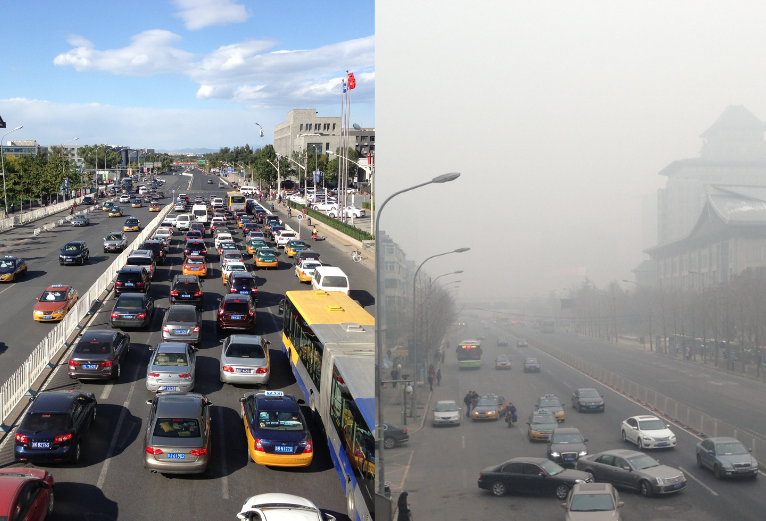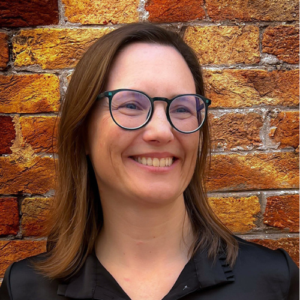Protecting human and planetary health with Professor Elizabeth J Z Robinson
Global Climate and Health Steering Group Member, Professor Elizabeth J Z Robinson from London School of Economics and Political Science, talks about changing the world for the better, supporting policy makers, and working towards a common goal.

Elizabeth J Z Robinson trained as an environmental economist. She is Director of the Grantham Research Institute on Climate Change and the Environment and a professor in the department of geography and environment at the London School of Economics and Political Science. Elizabeth is currently on sabbatical.

What motivated your focus on climate change and health?
Ten years ago, while on my first sabbatical in China with my daughters, Beijing had its first red alert. The air pollution was so bad that the schools were shut, the one place my daughters had access to relatively clean air. It got me thinking about why so many countries have done well reducing poverty and increasing prosperity, and yet their populations are living increasingly unhealthy lives, whether breathing highly polluted air, eating unhealthy diets, or living relatively static lives.
My research pivoted towards tackling climate change through a health lens. Whether that’s accelerating the transition to clean energy, asking how we can change both what we eat and how we produce that food, or ensuring people can have active lives.
As an economist it has also become increasingly clear to me that unless we protect our workforce from increasing heat due to the changing climate, our efforts to invest in a healthy low-carbon equitable economy will become ever more challenging.
Tell us more about your research on the impact of heat on the workforce
For the past two summers, my colleague Dr Shouro Dasgupta at CMCC and I interviewed workers in the UK. We carried this out just after a heatwave or extended period of heat, to try to understand to what extent, and how, workers perceive heat to be harming their health in the workplace. We also wanted to know whether workers feel that they are able to adapt to the heat and protect their health, and their income.
Why was it important to you to be involved with the Summit?
All my research is motivated by a belief that as an academic I can contribute to changing the world for the better. This doesn’t just mean doing academically rigorous research but being guided by issues that matter. By supporting policy makers and practitioners through providing rigorous evidence that is useful and useable, and working across disciplines with other academics.
Being involved with the Summit gave me an opportunity to learn, share, grow, and work towards a common goal. Climate change is already harming people’s health and wellbeing. My work with Dr Shouro Dasgupta has shown that most workplaces are not sufficiently adapted to the changing climate, that worker health is being compromised. We found that workers in high exposure sectors, such as agriculture and construction, gig workers, and those on precarious contracts, find it particularly hard to protect their health during heatwaves, with implications for inequality.
Being involved with the Summit gave me an opportunity to hear from trade union leaders about what matters for their workers. From physiologists about how we can together contribute to the design of better workplace adaptations, and government and industry representatives to discuss where there is common ground to move forward. Knowing that the Summit was focused on impact was particularly important to me.
What was a highlight for you?
There were so many inspiring speakers that it is hard to pick out just one or two. Dr Fortunate Machingura (Centre for Sexual Health and HIV/AIDS Research Zimbabwe, CeSHARR) provided a powerful introduction to the session that I chaired. She reminded us that we need to be focused on what evidence it will take to convince policy makers to act; and to think about “how we go from knowing what works to making it work at scale, with justice and care at the centre.”
During our panel discussion some of the questions from the audience inspired a heated (in the best possible way) conversation about how we protect workers from extremes of heat. It pushed the panellists, who included union representatives, to debate the pros and cons of legislation over maximum workplace temperatures, deepening our understanding of the roles of worker empowerment, government legislation, and employer adaptations in the context of increasing heat in the workplace due to the changing climate.
How important is the role of physiology in climate change and health discussions?
The role of physiology in discussions around climate change and health is clearly incredibly important but still under-represented. For example, my work as an economist looking at the impact of heat on workers is partial at best without working with physiologists to understand how increasing heat affects labour supply and labour productivity through its physiological impacts. And physiology is absolutely central to any discussion on limits to adaptation in this context, and the implications of those limits.
What do you think is the greatest challenge in tackling the impact of climate change?
We know with confidence that the planet is warming, with catastrophic effects. Environmental policy instruments have been designed that could align private sector, government, and individual actions in ways that do not cost the earth. Cost-effective technologies have been developed that offer clean reliable low-cost energy and a healthier future. Pathways towards that better healthier future have been mapped out. Yet still we find ourselves collectively walking with eyes wide open towards that catastrophic future.
I think the greatest challenge is not science, not technology, and not economics. Rather, it is the elusive missing pieces of a messy jigsaw puzzle. We might ask how we address vested interests more concerned with short-term profit than the planet, or why misinformation seems to spread so rapidly and persuasively. We might pay much more attention to the inevitable frictions that occur when countries need to change course away from the status quo, which can lead to conflict and, if not done with sufficient thought, harm the very people who are most vulnerable to the changing climate.
What is your hope for the future?
My hope is for a healthy and happy people and planet, but it is quite hard at the moment to be optimistic about the future. At this stage, I guess my hope is that we can change the odds a little more in our favour and avoid the worst of climate change, so that our children can live out their hopes and dreams. For this to happen, before it is too late, governments, industry, and higher income households in particular will need to prioritise a more equitable and healthier people and planet over short term profits and excess consumption.
What practical solutions do you think could help achieve this?
If we could stop trying to keep up with rich reality tv stars, that might help. Or maybe even better, if society and culture could celebrate more sustainable lives, #trainsnotprivatejets! We need to ensure that business success strengthens, not harms, the planet. This could include higher carbon taxes, although so far, we have seen them falter in Canada, and hardly reach the starting line in the US. Another approach is to engage with litigation against the major carbon emitters. This requires robust evidence on, for example, how emissions are harming human health, for which physiologists, economists, and lawyers could play an important role, working together towards a common goal.
We need to ensure that lower-income countries can join the clean energy revolution, with access to finance, that will have huge health benefits. And in higher-income countries, we need to celebrate our farmers who are having to feed an increasing global population under increasingly difficult climatic conditions, whilst recognising we must drastically reduce our consumption of meat and dairy.
Visit our Global Climate and Health Summit page to watch the session recordings and find out how the Summit is turning physiological science into action on climate and health.

